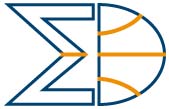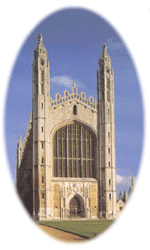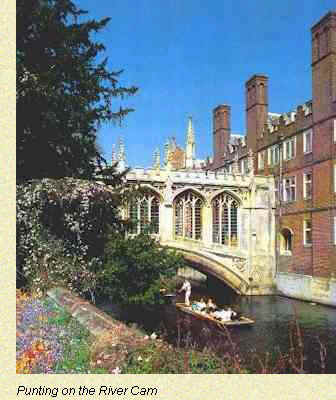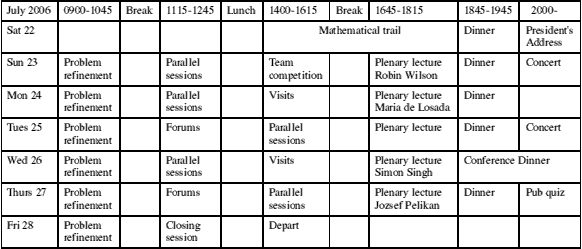
World Federation of National Mathematics Competitions

World Federation of National Mathematics Competitions
WFNMC 2006: 22-28 July 2006, Cambridge
(updated 18/1/06)
WFNMC is an Affiliated Study Group of ICMI whose interests are in competitions and related activities and their role in enriching the learning process. Every four years it holds a conference covering all aspects of mathematics competitions. The last conference was in Melbourne in 2002.

The WFNMC 2006 conference will be held in
Robinson College, Cambridge, England
from Saturday 22 to Friday 28 July 2006.
The venue has been carefully chosen to offer:
This should provide an ideal venue for the family atmosphere of a WFNMC conference [for information about the venue see www.robinson.cam.ac.uk].
Delegates are responsible for their own travel costs in getting to Robinson College. However, the all-in Registration fee (Early-bird £560; Late £610) covers everything within the college - registration, participation in the conference, accommodation for the duration of the conference, meals, and entertainments (but not any extra events outside the college which delegates may choose to sign up for).
Some delegates may need to arrive a day early on 21 July. We can arrange "Bed and Breakfast" in Robinson College (no evening meal on 21July and no lunch on 22 July) for £45 - payable in advance with your registration fee.
We have been fortunate in obtaining limited funds from the London Mathematical Society to offer a small number of highly subsidised places for selected delegates from Eastern Europe and Africa. We would like to use this money to encourage participation by those who have something significant to share, but who would otherwise be unlikely to attend. Successful applicants will have to fund their own travel to Cambridge, but will pay a much reduced Registration Fee (Early-bird £160, Late £210). If you know anyone who might like to apply, please ask them to contact the Chair of the Organising Committee directly [A.D.Gardiner@bham.ac.uk] as soon as possible, and certainly before 7 February. Decisions will be communicated before 14 March.
Arrival
London is the obvious arrival point, but is served by four different airports: the two main airports are London Heathrow and London Gatwick; but cheaper European airlines often fly to London Stansted and London Luton.
(Delegates who consider flying to other UK airports should perhaps contact us before booking and we will do what we can to provide the relevant local information.)
Travel to Cambridge
Stansted is the closest airport to Cambridge - with reasonably regular train and coach services taking 45 minutes (cost £12 return). Luton is served only by a coach service - with a decent direct service every 2 hours and taking 1.5 hours (cost £16 return).
Heathrow-Cambridge is served by both train and coach, with each taking 2-2.5 hours and costing £34 return. The coach may be slightly slower, but is direct (no changes), and the bus station in Cambridge is closer to the College than the train station. The train may be slightly
quicker, but obliges one to travel via central London (which could be an advantage for those with time to spare), and to make at least one change: subway from Heathrow to Kings Cross (45 minutes, £4 each way), followed by a direct service to Cambridge (50 minutes, Saver return £25.10); however, if either journey involves travelling at peak times the total train fare may be higher (£44 return).
From Gatwick we advise delegates to travel by train - buying a Saver return ticket for the whole journey (£34.40 return, including cost of subway) - the Gatwick Express into London, then the subway to Kings Cross, and then a train to Cambridge.
Maps of Cambridge
http://www.robinson.cam.ac.uk/info/findingus.php shows Robinson College and the Bus Station (marked 4), with the train station marked as a double-headed arrow on the bottom right.
http://www.cam.ac.uk/map/v3/drawmap.cgi?mp=city shows the bus station and the train station, with Robinson College near the bottom end of Grange Road - on the bottom left of the map.
Cambridge is completely flat, so walking is fairly easy. However, the train station is around 30 minutes walk from the city centre and from the College; the bus station is very close to the city centre and is 10 minutes walk from the College. Taxis are available from both - though we will try to meet people if we know their arrival times in Cambridge.
Arrival in Cambridge
We recommend travel by train or coach from the arrival airport. We will provide delegates with the conference office phone number, and will try to meet trains and coaches arriving in Cambridge on the afternoon of 22 July. However, this will not always be possible (trains and coaches can be delayed; groups may be arriving at the train station and the bus station simultaneously; and Cambridge traffic can be bad). Taxis are available at both the train station and the bus station: the cost should be around £6.
Accompanying persons' programme
Cambridge and its surrounds provide plenty for ordinary visitors to explore; and London is less than an hour away by train for those who have other ideas. We will facilitate and help to organise an informal Cambridge-based accompanying persons' programme to suit the interests of those who attend.
The attractions of the venue are complemented by the quality of those who have agreed to give plenary talks.

Presentations by delegates
Those who register for WFNMC 2006 are encouraged to give a presentation in the time allocated for "parallel sessions". Details of how to register your desire to give such a presentation can now be found here.
All delegates are encouraged to bring materials and/or posters, which they would like to put out for other delegates to peruse. The display area will be reasonably secure, but valuable items should only be displayed when the delegate is present to watch over them.
 |  |
There is nothing harder, or more important, than a good beginning.
Those who have accepted to act as Chairs of these groups are: Primary (Peter Bailey), Junior popular (Gregor Dolinar), Intermediate popular (Ian VanderBurgh), Senior popular (Harold Reiter), Junior Olympiad (Bruce Henry), Intermediate Olympiad (Andrew Jobbings), Senior Olympiad (Gerry Leversha), Team (Steve Mulligan), Student problem journals (John Webb). Delegates should declare their preferences on the Registration Form.

We welcome comments and proposals from intending participants.
See you there!
Tony Gardiner
Chair, Organising Committee WFNMC 2006
Proposed Programme
